Newborns, nature, co-working and compost: behind the scenes at four UK social enterprises
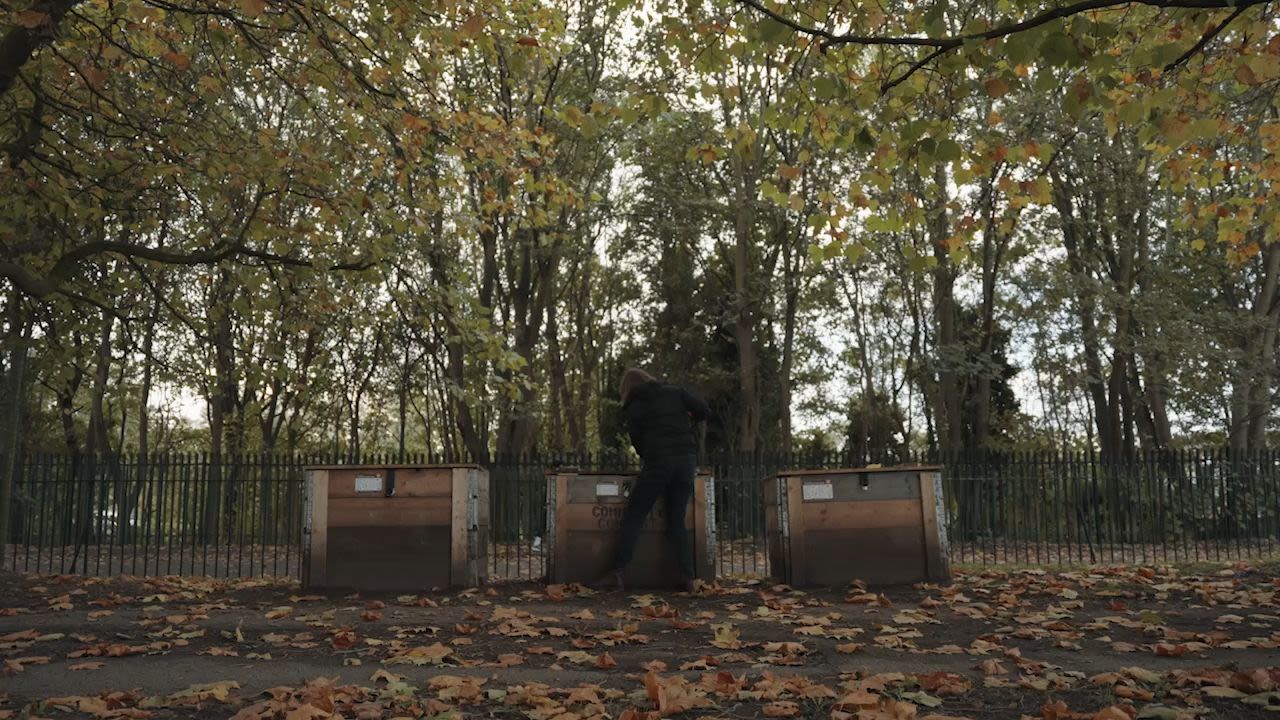
Welcome to this Virtual Study Visit of four social enterprises based in different parts of the UK – a healthy living centre in Northern Ireland, a garden centre which has created a green oasis in the city of Manchester, a tech-for-good co-operative in London and a community enterprise tackling food waste in Liverpool.
Through this virtual environment, you can explore articles, films, tours and tips from each of the organisations to learn what they do, the impact they have, the challenges they face and what makes them successful.
The Pioneers Post team created this tour especially for the teams of young social innovators who took part in the British Council’s COOPower Project in Cyprus, Greece, Croatia and Hungary. Due to the Covid-19 restrictions, they were unable run an in-person study visit so we brought them to the participants instead, through this digital platform.
What’s here and how to navigate
You can explore these organisations and resources either by scrolling down the page or by using the menu bar at the top to click through to the different sections. (Note that there is a lot of media content provided in this environment, so in some cases and depending on your internet speed, you might need to wait a little for some films or other content to fully load.)
Each section focuses on a specific organisation (named in the menu), and features:
• a brief video welcome from one of the organisation's leaders
• a written introduction with some ‘fast facts’
• a case study film with commentary from key people, and
• a separate ‘video tour’ to help you find your way around each place.
There’s also an introduction to the co-operative and social enterprise sector in the UK, and welcome videos from Marilena Kyriakou, Education and Society Manager for the British Council in Cyprus, and Juliet Cornford, Senior Consultant in the British Council’s Global Social Enterprise team.
Off we go!
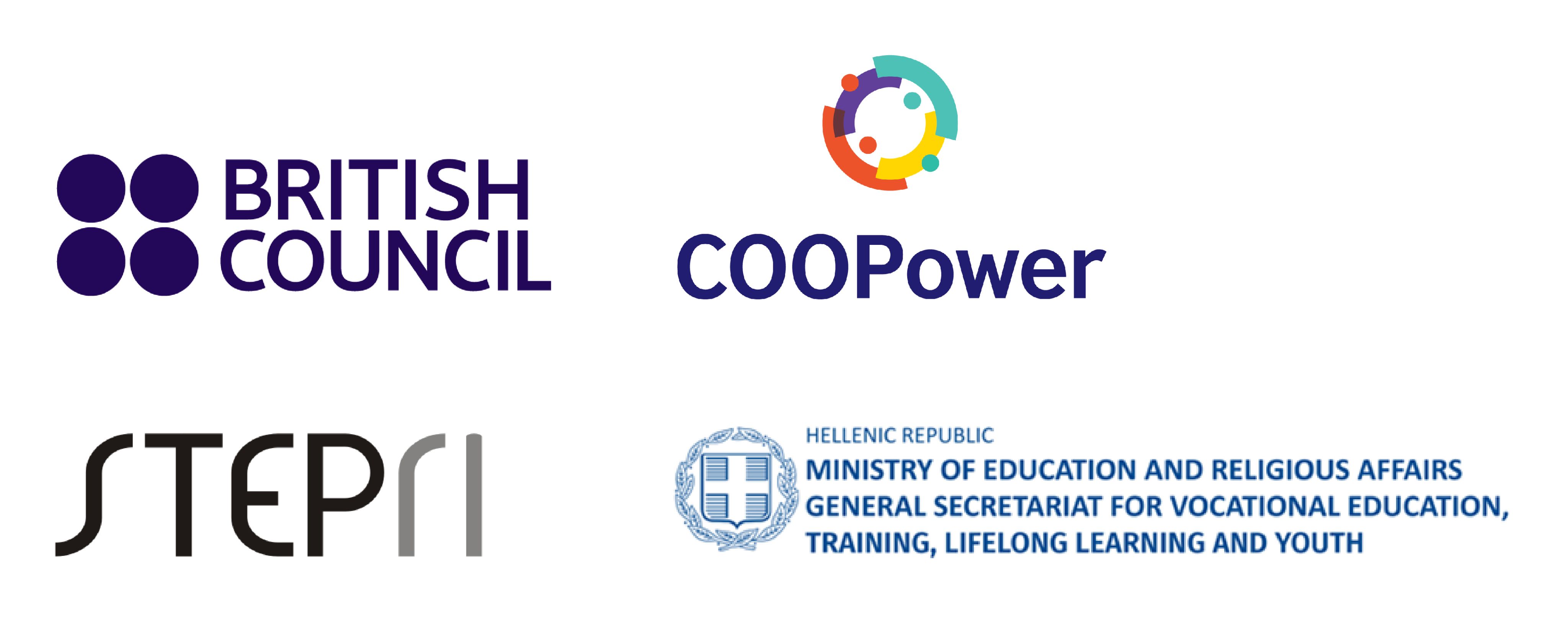
Welcome
from Marilena Kyriakou and Juliet Cornford
from the British Council
Co-operatives and social enterprises in the UK
Co-operatives and social enterprises are significant sectors in the UK, together contributing billions of pounds to the economy, creating and sustaining hundreds of thousands of jobs and making a positive impact for individuals and communities across the country.
The modern day co-op movement was founded in the north of England in Rochdale, Lancashire, in 1844. Since then, the co-op model has spread across the world: according to Co-operatives UK, there are three million co-ops worldwide, impacting on the lives of over a billion people. More than 7,000 of these co-ops are in the UK, contributing almost £40 billion to the economy. Some 14 million people in the UK are co-op ‘members’ – equivalent to a fifth of the population.
Co-operatives and social enterprises in the UK are closely related and share many of the same values. However, while co-operatives are focused around different types of representative membership, with specific legal structures to reflect this, the term ‘social enterprise’ in the UK is less bound to a specific legal form and more about its mission and values, how it behaves, what it does with its profits and how it creates positive impact.
Membership body Social Enterprise UK describes social enterprises simply as ‘businesses that are changing the world for the better’. It adds: ‘Like traditional businesses they aim to make a profit but it’s what they do with their profits that sets them apart – reinvesting or donating them to create positive social change.’
In the UK, the term ‘social enterprise’ covers a wide range of different ventures, each of them united by some key characteristics:
• they have a clear social purpose
• they generate a significant proportion of their income from trading
• they reinvest the majority of their profits in their social mission.
These organisations bring together the entrepreneurial skills of the private sector with the ethos and values of public service. They comprise thousands of different organisations using diverse business models in different markets to meet the UK’s many and varied social needs.
Their origins are varied too. Many have simply started independently; perhaps nurtured by specialist support organisations. Some social enterprises have grown out of charities and NGOs; whilst others have emerged as spin outs from the public sector.
Social Enterprise UK reports that – including co-operatives – there are 100,000 social enterprises across the UK, contributing £60 billion to the economy and employing two million people.
The last ten years have seen a significant growth in the social enterprise sector in the UK. There have been changes in the approach of government and new responses from the sector itself. There has been a big increase in the number of incubators, a new focus on social investment and enhanced emphasis on measuring social value. Changes in the economy are forcing traditional charities to become more entrepreneurial. Government policy is outsourcing many services traditionally delivered by government, from healthcare to libraries. And many businesses are choosing to consider their social and environmental impact as well as their financial profit.
ARC Healthy Living Centre
Helping people to help themselves in Northern Ireland

In the 1990s, Sallyswood estate in Irvinestown, Fermanagh, was an area of empty housing, bricked-up windows and high levels of crime. So when ARC Healthy Living Centre was due to open in a refurbished building there, some wondered if the windows would survive overnight.
The sceptics were proven wrong. And 20 years on, ARC is still proudly located in Sallyswood, serving people across a sparsely populated county with limited public transport and limited access to services.
A registered charity, ARC is linked to the Irvinestown Trustee Enterprise Company Ltd (ITEC), a social property company created more than 100 years ago. ITEC aims to boost economic prospects in the area, currently managing some 55,000 square feet of affordable workspace. Together with local partners, ITEC set up ARC to address persistent social problems such as substance abuse, social isolation and poor child nutrition.
Today, ARC’s huge range of services – from a food bank to an afterschool club to a falls prevention programme for old people – may appear incoherent. But they all stem from what CEO Jenny Irvine describes as 'empathetic listening' to people’s needs, and they’re all focused on improving long-term health by ‘helping people to help themselves’. Its addiction service, for example, helps people who have not yet fully stopped using drugs and are therefore not eligible for government support programmes. ‘It’s a harm reduction model based on respect and empathy, working with people right where they are,’ says Irvine.
ARC has been accredited with the internationally-recognised Social Enterprise Mark since 2009. Some of its programmes are funded through government contracts, while others are self-sustaining. ARC also generates income through room hire and events and through coordinating a pool of childcare workers; funders including the National Lottery have covered the costs of referrals through social prescribing. ARC also gets the surplus generated by ITEC’s properties.
Irvine says it’s essential not to ‘parachute services in’ without considering the long-term impact of removing those services, should funding sources dry up. And she warns against chasing money for the sake of it. In recent decades much of the funding in Northern Ireland was for promoting peace and cross-community relations. But that wasn’t really an issue in Irvinestown. ‘We were never going to diminish that by seeking funding to respond to a problem that we probably didn’t have,’ she says
Irvine, who trained as a nurse, recalls the moment that led her to ARC. She and her mother, also a nurse, had been called to help respond to the aftermath of the Real IRA bombing in the nearby town of Omagh in 1998, which killed 29 people – the deadliest day of the Northern Irish Troubles.
‘I said, “Somebody should really do something about this.” My mum looked at me and said, “Well, you’re somebody!” There's nothing like your mum to give you a challenge!’ When the CEO role at ARC came up not long after, she applied.
Irvine’s nursing background continues to inform the ARC philosophy – prioritising proactive, preventative healthcare. ‘The idea that we nurses assess the situation; it’s person-centred; that the care meets the needs, that we evaluate everything we do – that model can be applied very well to this type of work,’ she says.
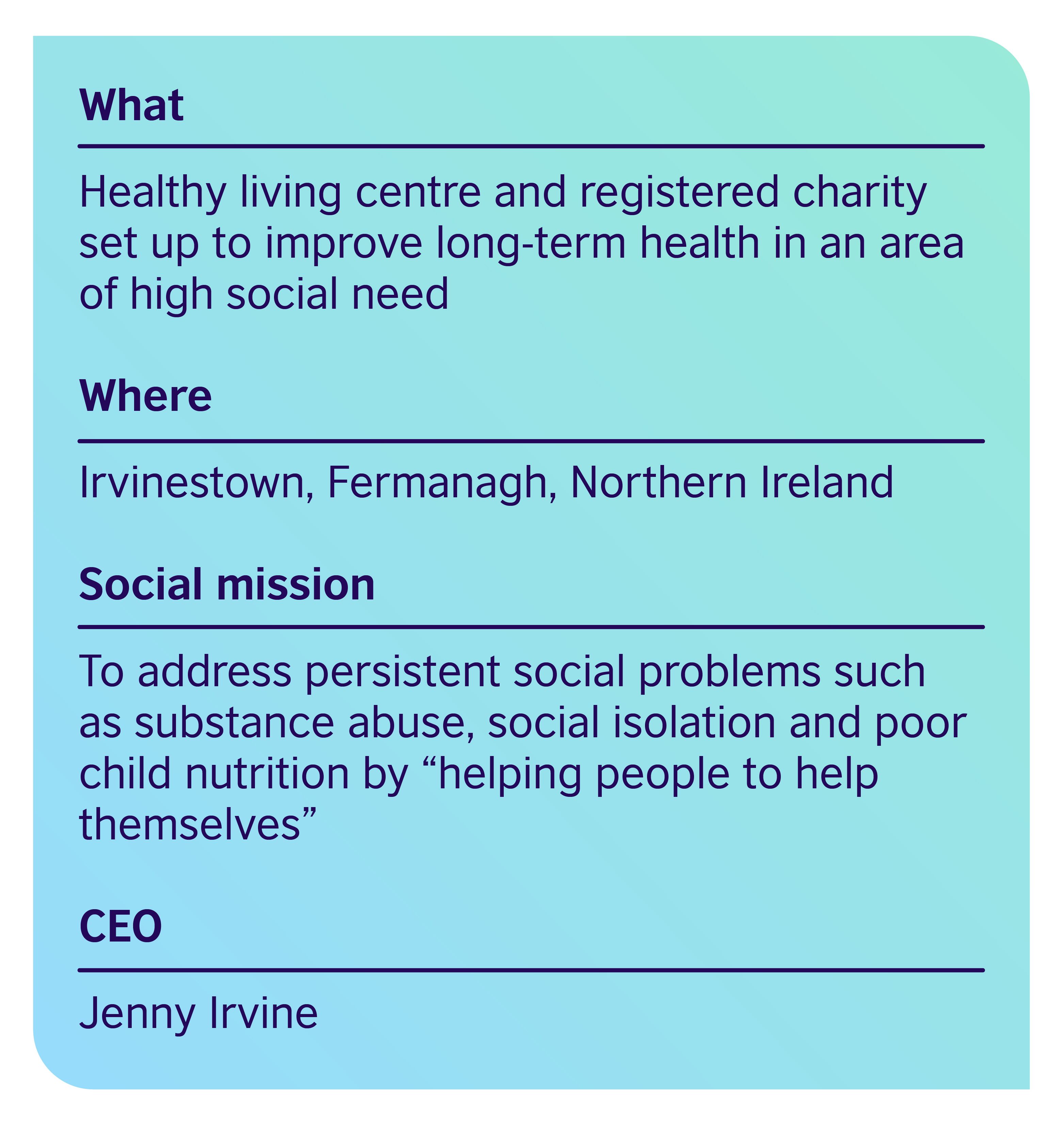
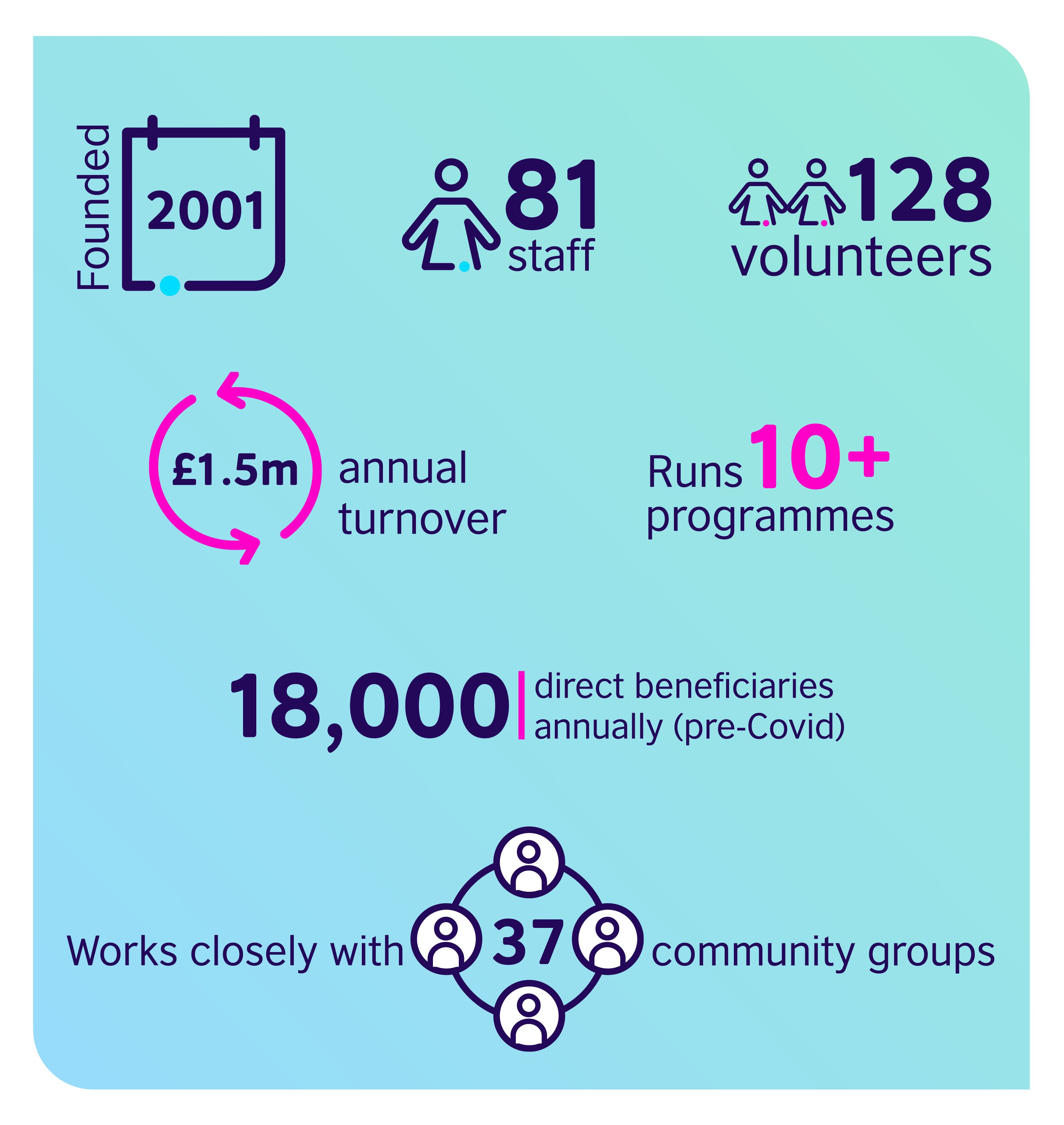
JENNY’S TOP TIPS FOR YOUNG SOCIAL ENTREPRENEURS
✱ Believe in your vision – that change is possible.
✱ Work with others: make friends, create partnerships, network with and learn from other social entrepreneurs.
✱ Make sure what you do is based on actual need, not on what you want to do.
✱ Keep a sense of humour – you have to enjoy what you’re doing.
TAKE A TOUR
www.archlc.com
twitter.com/ARCHLCLTD1
Hulme Community Garden Centre
A green oasis in the city of Manchester

It all started two decades ago when a group of nature-lovers were given guardianship of a derelict patch of land at the heart of Hulme, an inner-city neighbourhood just south of the centre of Manchester: Hulme Community Garden Centre was born.
The organisation now looks after a two-acre area and runs a number of programmes for the benefit of the local community.
The garden’s volunteer group are both contributors and beneficiaries of the organisation. Many of the 50 regular volunteers are people who have been facing crisis or trauma, or simply have had a tough period in their lives. In addition to learning new skills and improving their mental health through gardening, the volunteers also build new social connections with like-minded people in a safe space.
At the same time, they maintain the garden and grow plants that are then sold in the garden centre, creating an income stream for the organisation.
In addition to this, Hulme Community Garden Centre runs various educational activities, from creative learning for toddlers and young families to primary school sessions. The centre also offers opportunities for college and PhD students – some of which have been using the site for their research.
A charitable company limited by guarantee, the centre receives funding from the public and private sectors on a project-by-project basis. To become more self-sustainable it is now developing its other sources of income, such as selling plants and edibles grown in the centre and woodwork items made by volunteers.
Hulme has undertaken major regeneration in the past two decades and is now a vibrant and diverse community. University buildings, cultural organisations, new flats and affordable homes have replaced stern 1960s blocks of council housing that dominated the landscape in 2000. The centre is now in the process of building new indoor space for the shop and cafe, having crowdfunded £200,000 from local community members.
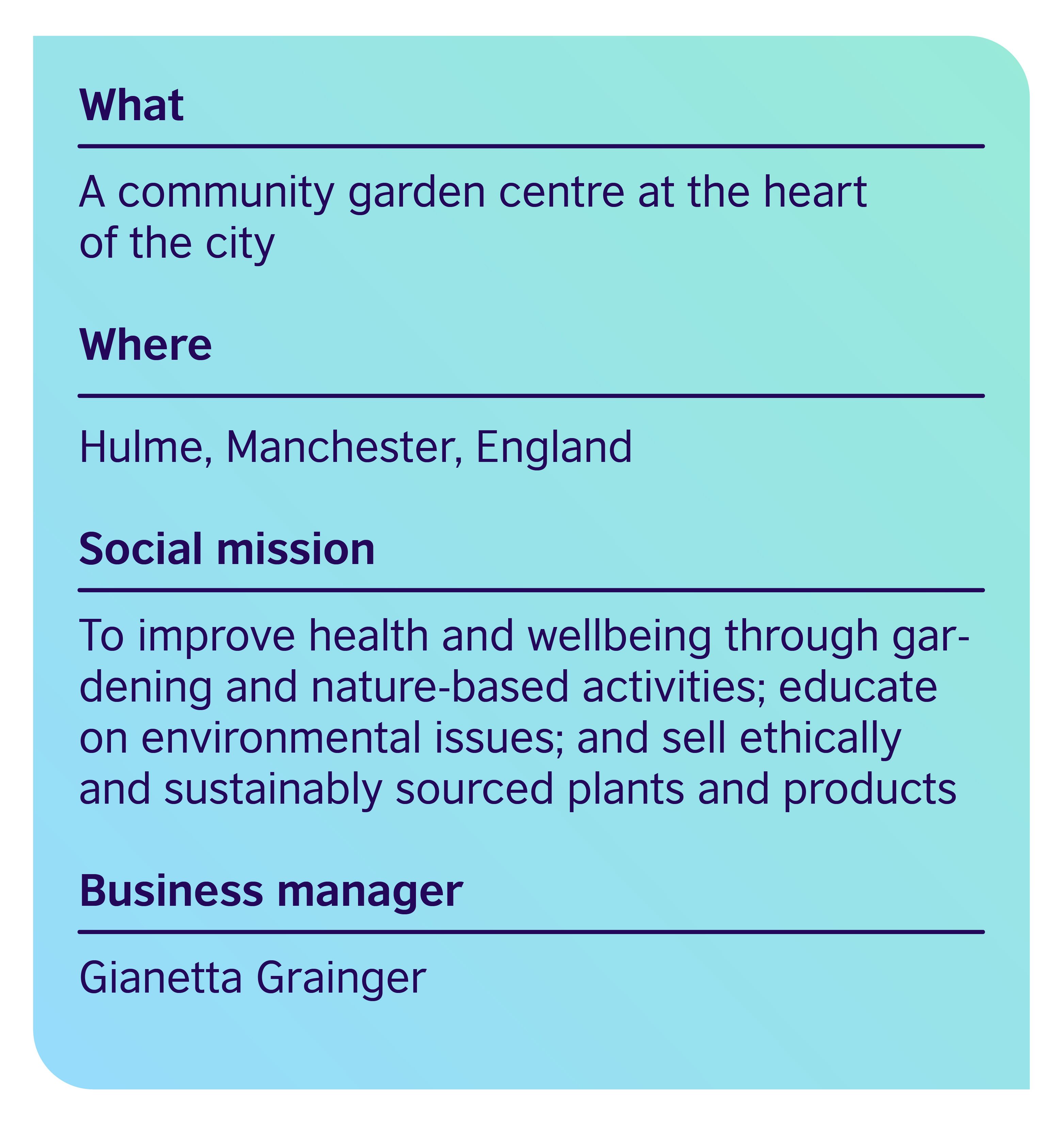
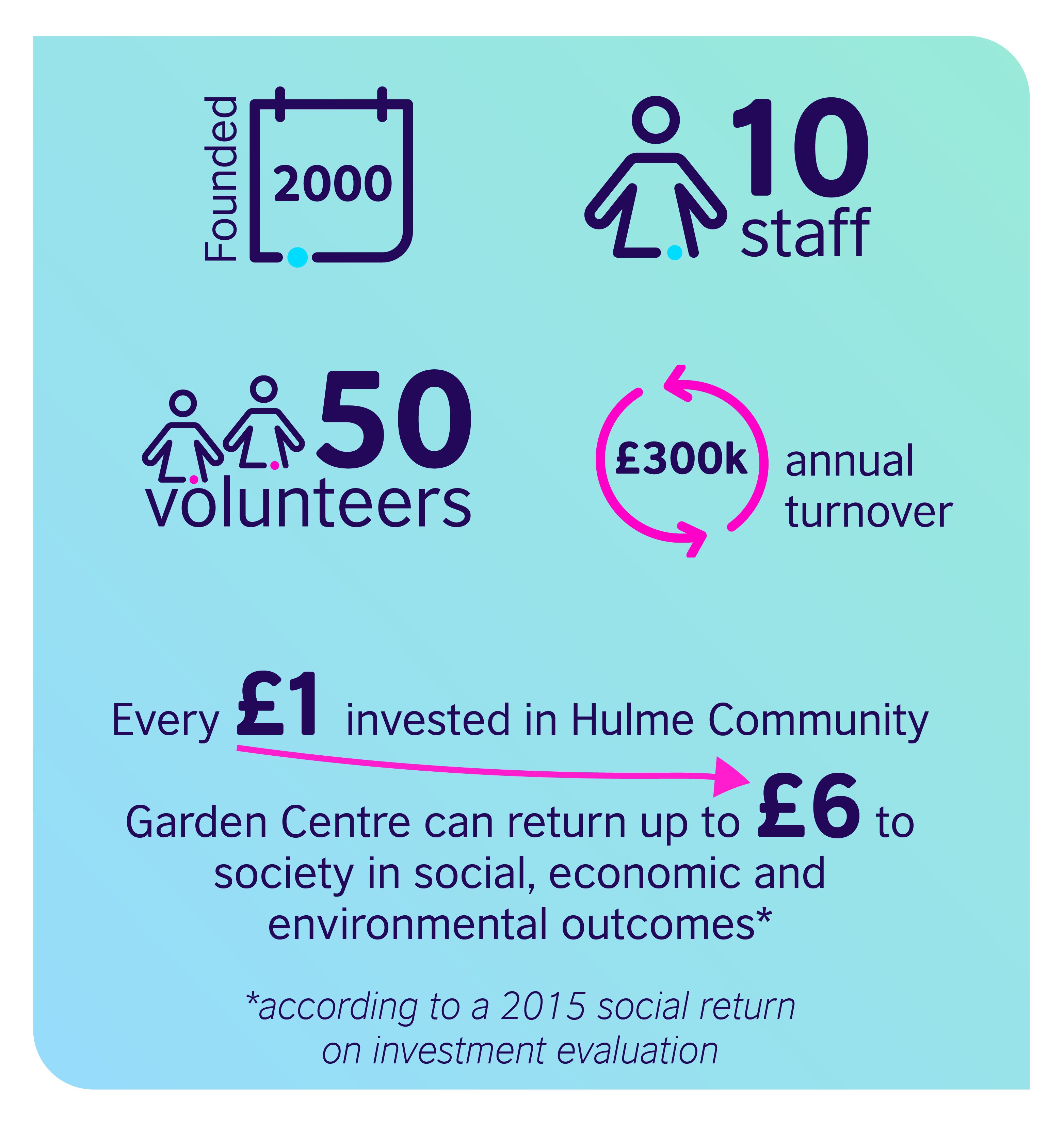
GIANETTA’S TOP TIPS FOR YOUNG SOCIAL ENTREPRENEURS
✱ Look at who your audience is: who will benefit from your business’s activities?
✱ Respond to people’s needs: where are the gaps in their lives?
✱ Don’t forget the true essence of community work is collaboration, so look for support from like-minded organisations and local authorities.
✱ Money is important: apply for funding and develop your income streams.
TAKE A TOUR
www.hulmegardencentre.org.uk
twitter.com/HulmeCgardenC
Outlandish
The tech for good co-operative making an impact in London

When Outlandish was founded ten years ago by a group of friends who wanted to do “tech for good” – developing digital tools to create a positive social impact – it was set up as a limited company like any other.
But the team soon realised that what they were doing wasn’t just about profit: it was about people, so they decided to become a co-operative and follow a sociocratic governance structure.
That means the co-operative has no hierarchy, with all eight members having equal power. Decision making is streamlined thanks to a system where members are part of smaller 'circles' that oversee specific areas of the business (for example finance, design or tech). Decisions can be approved at 'circle' level so they don’t require everyone to vote each time – with only the most important matters being dealt with by all of the members.
Outlandish makes its income from client work, for which it charges a day rate like a commercial agency would. 50 per cent of this income goes to pay workers’ wages, and about 30 per cent goes to non-project internal spending like admin or training. The 20 per cent surplus is used to fund social impact projects or to support the tech co-operative sector at large.
The co-operative also runs Space4, a co-working space for impact co-ops and freelancers, and organises workshops for other organisations to develop skills, discuss its governance model or talk about ethics in tech.
Running a growing co-operative is not without challenges, explains co-working space and events manager Polly Robbins. Co-operatives do not normally take investment from external investors – to be able to maintain the 'one member, one vote' co-op principle – which means it can be difficult to grow. A way to unlock finance is to develop peer-to-peer co-operative lending: co-ops that are doing well and have a surplus can lend to others that are seeking investment to scale up.
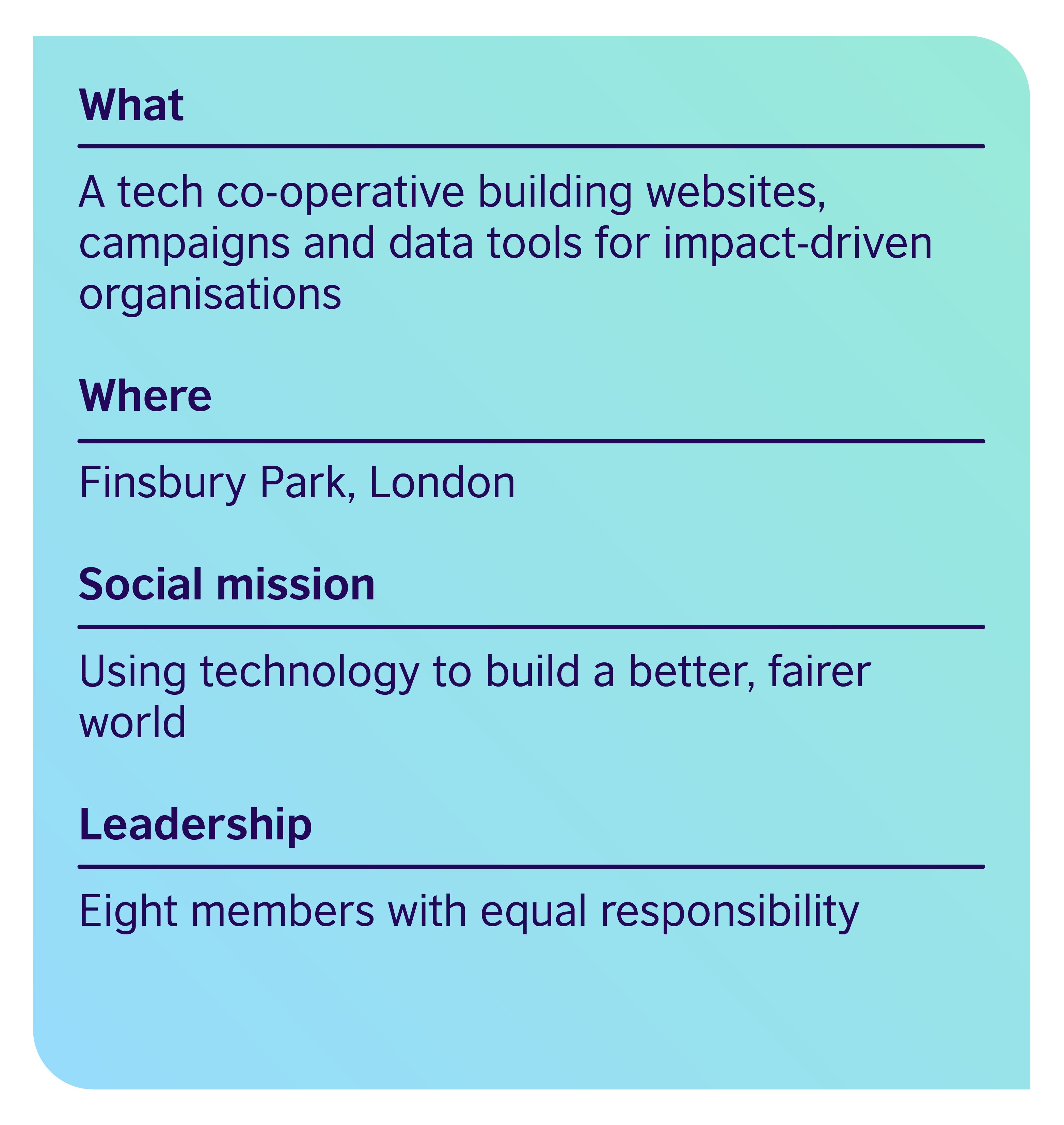
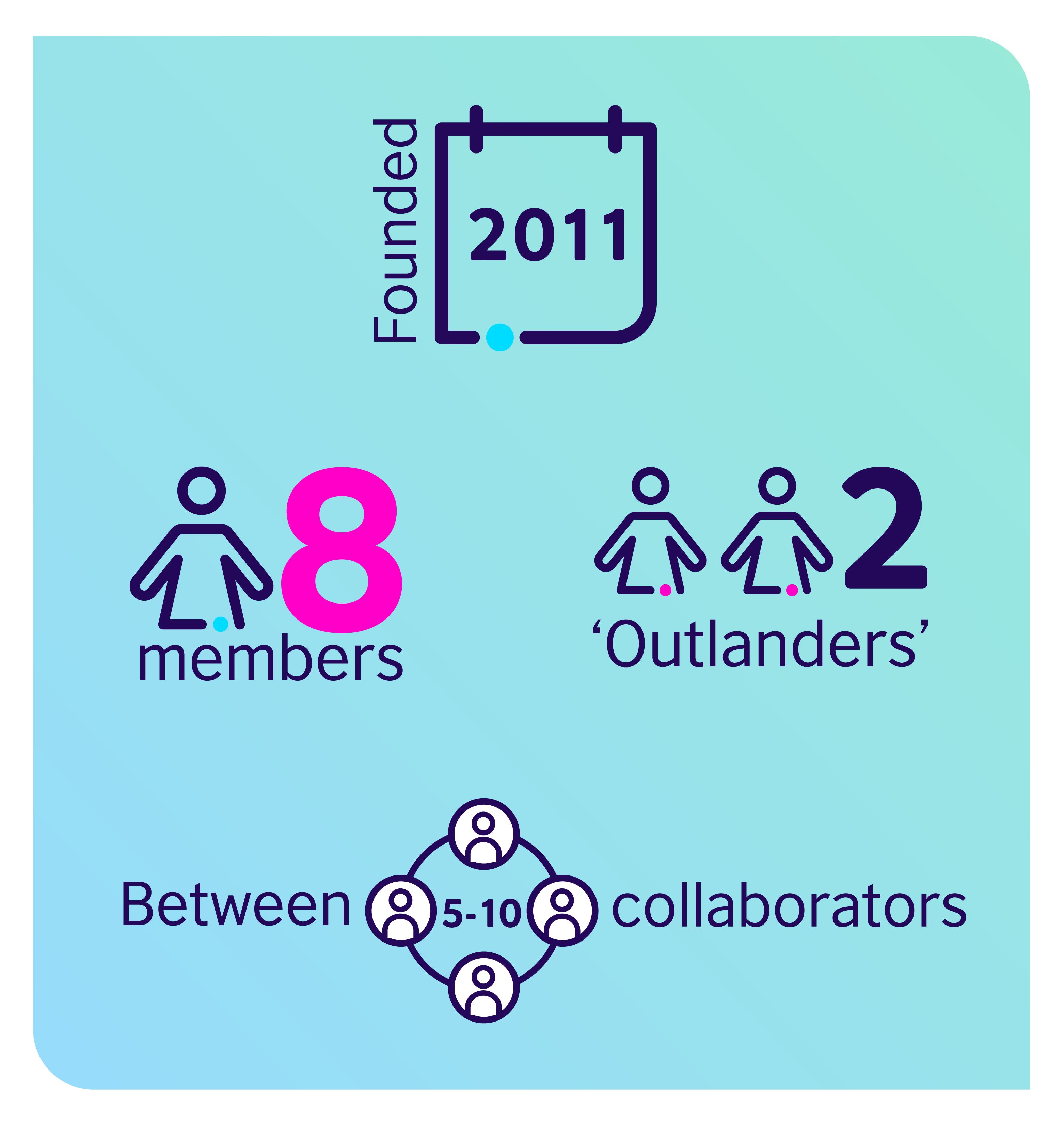
POLLY'S TOP TIPS FOR YOUNG SOCIAL ENTREPRENEURS
✱ Work out who your target market is.
✱ A co-operative is first and foremost a business: make sure you have the right business model and clients so you can be sustainable.
✱ Try out sociocracy – read about it, think about how it could work for your organisation, and give it a go.
TAKE A TOUR
www.outlandish.com
twitter.com/outlandish
Compost Works
The community enterprise tackling food waste in Liverpool

In Liverpool, there’s no specific food waste collection service, which means it ends up being incinerated or in landfill. For Minna Alanko-Falola, who grew up in Finland in a family where composting was an obvious thing to do, this didn’t feel right.
After a twenty year career in the charity sector, she set up her own social enterprise, Compost Works, that runs community compost sites where local people can bring their food waste to be composted.
The business receives funding from public authorities and local community groups to install communal compost facilities, usually in public spaces or shared private land where people can come and dispose of their food waste. Once the food waste has been processed into compost – which can take between six months and a year – it is redistributed among users and local community gardens and allotments.
Compost Works manages the sites with the help of local volunteers, ‘Compost Champions’. The social enterprise also partners with other organisations that take ownership of the compost facility and are given training on how to manage it independently.
For Alanko-Falola, community compost sites are just the first step. She is working on a cargo-bike collection scheme that will pick up food waste directly from people’s homes. But that doesn’t come without challenges: while the community composting sites only require minimal authorisation, the legislative permits required to become an accredited waste carrier are much more complex.
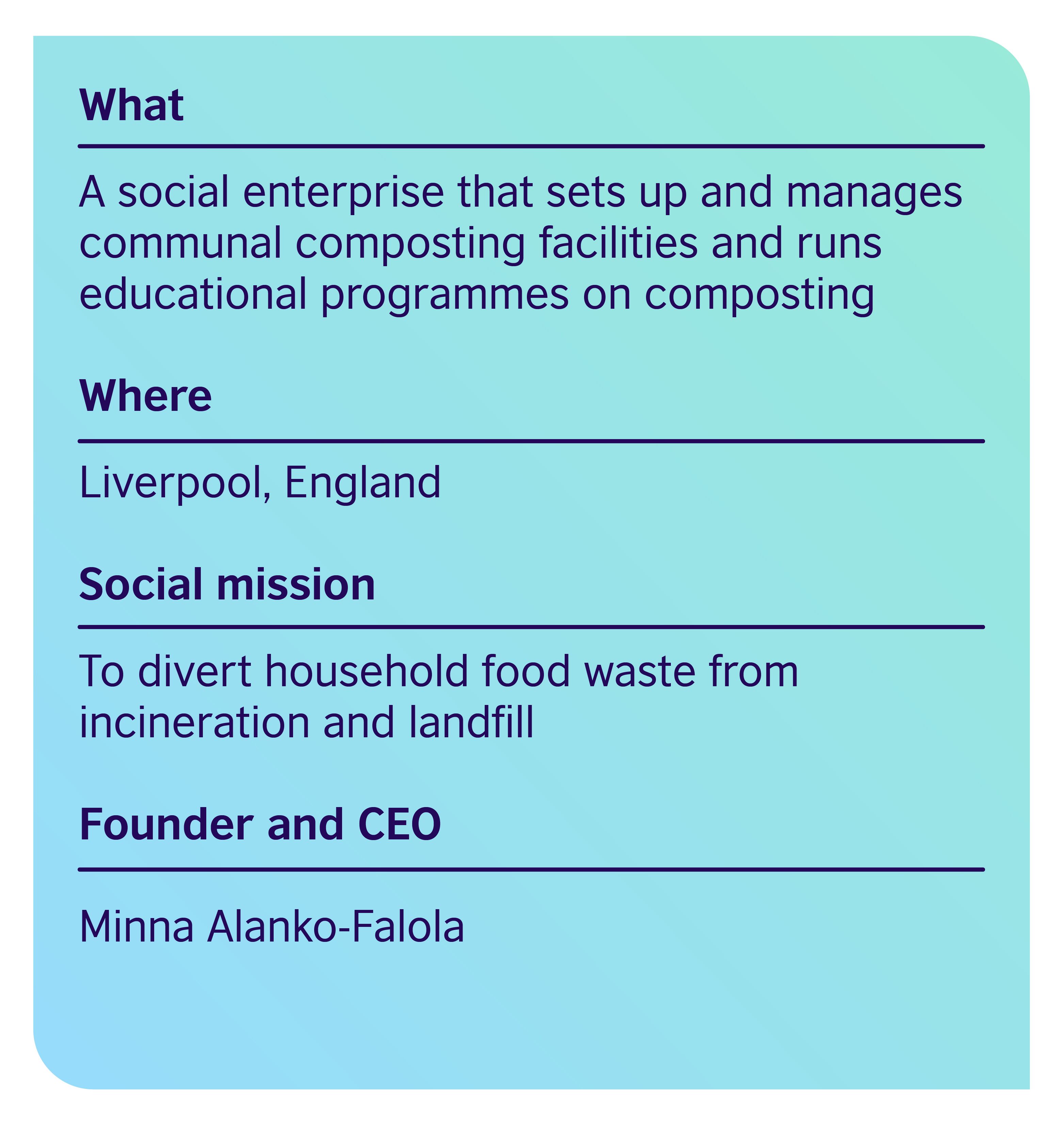
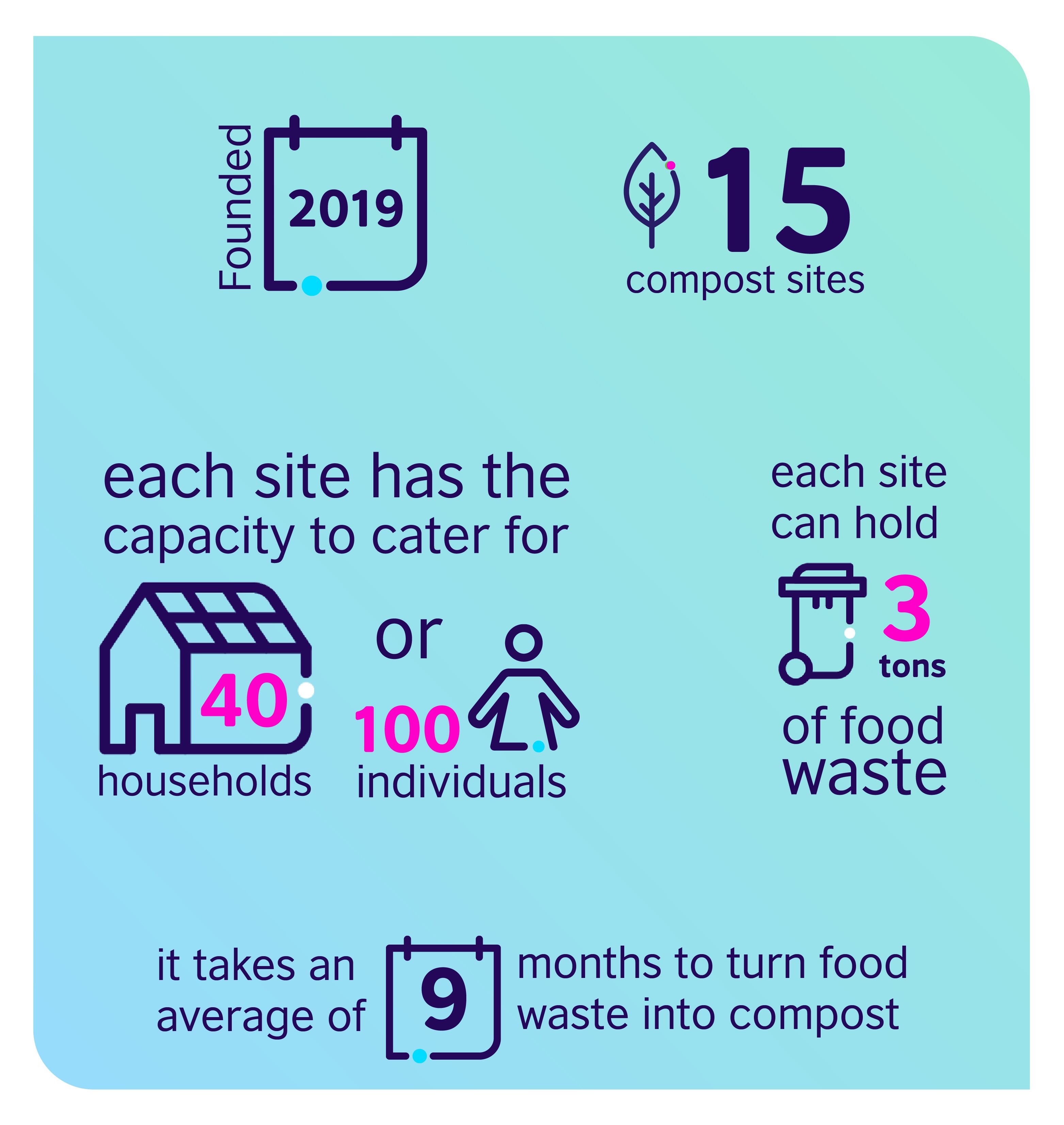
MINNA’S TOP TIPS FOR YOUNG SOCIAL ENTREPRENEURS
✱ If you have a passion that can benefit the community and the environment, try to develop it because this is what the world needs right now.
✱ Network and connect with other people and organisations, and share your resources with others.
✱ Do the groundwork and find out what already exists in your field, and see if you can replicate it and improve it.
TAKE A TOUR
www.archlc.com
twitter.com/ARCHLCLTD1
What is COOPower?
The COOPower project aims to raise public awareness of co-operative and social economy enterprises as alternative, inclusive and innovative approaches to tackling youth unemployment. It promotes the value of social enterprises and co-operatives as viable career pathways.
During the past year, the project has been providing practical support to young people in Cyprus, Greece, Croatia and Hungary, running a series of ‘COOPathon’ start-up workshops in each country, showcasing their social innovations and celebrating the teams with the best ideas. At the same time the project has also been supporting a group of early career journalists to highlight the power of the social economy to create positive change, providing them with training and opportunities to create content around the COOPower themes.
Find out more about the COOPower project.
COOPower Young Journalists
Cyprus:
Andreas Andreou, Büke Dorukan, Andri Koumidou, Alexandra Fougala-Metaxa

Croatia:
Marijana Gašparović, Marko Pavelić, Iva Martinović, Katja Knežević

Greece:
Thanos Kyratzis, Anna Lampropoulou, Margaritis Annaoglou

The Pioneers Post team ran a training course for these young journalists. Read more about what they did here.
Who’s behind COOPower?
COOPower is led by the British Council and delivered in partnership with the General Secretariat for Vocational Education, Training, Lifelong Learning and Youth of the Hellenic Ministry of Education and Religious Affairs and Step Ri, the Science and Technology Park of the University of Rijeka in Croatia.
COOPower is also supported by the Youth Board of Cyprus, the Hellenic Manpower Employment Organisation and the Ministry of Science and Education of the Republic of Croatia.
Find out more and get access to information and resources as part of the British Council's global social enterprise programme.
This virtual environment was created for the British Council’s COOPower Project by Pioneers Post, the global news and storytelling platform for mission-driven businesses, social entrepreneurs and impact investors.
Based in the UK but with a global audience, Pioneers Post is a social enterprise itself, with a mission to explore, explain, connect, challenge and inspire the new wave of changemakers around the world.

This project is co-funded by the European Union
COOPower project is co-funded by the European Union. This page only reflects the views of the authors and the European Commission is not responsible for any use that may be made of the information it contains.

